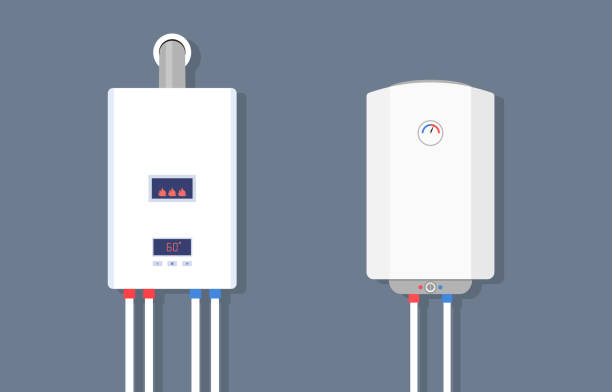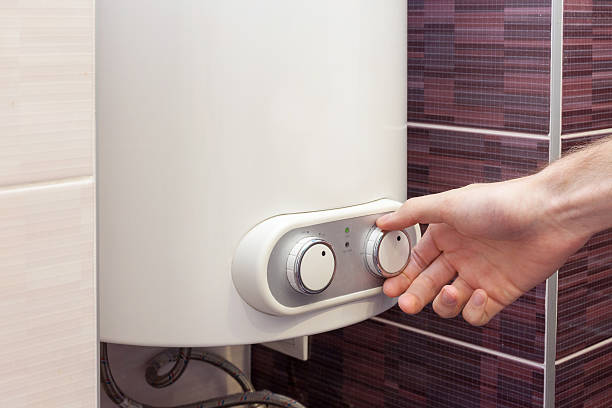When it comes to choosing a combi boiler for your home, you have two main options: electric and gas. Both types have their own unique set of pros and cons, and the right choice for you will depend on your specific needs and preferences.
Electric Combi Boiler vs Gas Combi Boiler: A Comparison
Gas combi boilers are powered by natural gas and are the most popular choice for homes that are connected to the gas grid. They are typically more energy efficient than electric combi boilers and can be more cost-effective in the long run. However, gas combi boilers do require a flue and regular maintenance to ensure they are operating safely.
On the other hand, electric combi boilers do not require a flue or regular maintenance. They are also a good option for homes that are not connected to the gas grid. However, they are generally less energy efficient than gas combi boilers, which means they may cost more to run in the long term.

Electric Combi Boiler Pros and Cons: What You Need to Know
Electric combi boilers have several advantages over gas combi boilers. For example, they do not require a flue, which means they can be installed in homes without access to an external wall.
They also do not produce any emissions, which means they are a more environmentally friendly option. Additionally, they do not require regular maintenance, which can save you money in the long run.
However, electric combi boilers also have several downsides. For example, they are generally less energy efficient than gas combi boilers, which means they may cost more to run in the long term. They also require a significant amount of electricity to run, which can be costly if you live in an area with high energy prices.
Electric Combi Boiler Prices and Installation Costs: Is it Worth the Investment?
The cost of an electric combi boiler will depend on the model and size you choose. On average, you can expect to pay between £800 and £2,500 for a new electric combi boiler. Installation costs will also vary depending on your location and the complexity of the installation.
When considering the cost of an electric combi boiler, it’s important to factor in the long-term running costs as well. Electric combi boilers are generally less energy efficient than gas combi boilers, which means they may cost more to run in the long term. Additionally, the price of a unit of electricity has traditionally been higher that a unit of gas.
Gas combi boilers: Pros:
- Gas combi boilers are generally more energy efficient than electric combi boilers, which means they may cost less to run in the long-term.
- Gas combi boilers can be less expensive to purchase than electric combi boilers.
- Gas combi boilers are widely available and can be installed in most homes.
Cons:
- Gas combi boilers require a connection to the gas grid, which may not be available in some areas.
- Gas combi boilers require a flue and ventilation system, which can take up extra space in your home.
- Gas combi boilers require regular maintenance and must be serviced by a qualified professional to ensure they are operating safely.
- Gas combi boilers produce emissions, which can have an impact on air quality.
Electric combi boilers: Pros:
- Electric combi boilers do not require a flue or ventilation system, which means they can be installed in homes without access to an external wall.
- Electric combi boilers do not produce any emissions, which means they are a more environmentally friendly option.
- Electric combi boilers do not require regular maintenance, which can save you money in the long-term.
- Electric combi boilers do not require a connection to the gas grid, so they can be installed in any home.
Cons:
- Electric combi boilers are generally less energy efficient than gas combi boilers, which means they may cost more to run in the long-term.
- Electric combi boilers require a significant amount of electricity to run, which can be costly if you live in an area with high energy prices.
- Electric combi boilers may be more expensive to purchase than gas combi boilers.
- Electric combi boilers may be more expensive to install than gas combi boilers.
It’s important to note that both types of combi boilers have their own unique set of pros and cons, and the right choice for you will depend on your specific needs and preferences. By considering all of the factors, you can find the combi boiler that will best meet your needs and budget.

Other factors to consider
Space requirements
Gas combi boilers require a flue and a ventilation system, which can take up extra space in your home. Electric combi boilers do not have this requirement, so they can be a good option for homes with limited space.
Energy efficiency
Gas combi boilers are generally more energy efficient than electric combi boilers, which means they may cost less to run in the long-term. However, electric combi boilers are still an efficient option, and the efficiency of electric combi boilers is improving.
Environmental impact
Electric combi boilers produce zero emissions, which means they are a more environmentally friendly option. Gas combi boilers produce emissions, which can have an impact on air quality.
Fuel availability
Gas combi boilers require a connection to the gas grid, whereas electric combi boilers do not. This means that electric combi boilers are a good option for homes that are not connected to the gas grid.
Maintenance requirements
Electric combi boilers do not require regular maintenance, which can save you money in the long-term. Gas combi boilers require regular maintenance and must be serviced by a qualified professional to ensure they are operating safely.
Cost
Both gas and electric combi boilers have different costs associated with them, including the cost of the boiler itself, installation costs, and running costs. It’s important to take all of these costs into account when making your decision.
Brand reputation
Research on the different brands available and look at their reputation, warranty, and after-sales service. This would ensure that you are getting a reliable and quality product.
Conclusion
Electric combi boilers can be a great option for homes that are not connected to the gas grid or for those who want an environmentally friendly option. However, it’s important to consider the long-term running costs, as well as the overall reliability and energy efficiency of the boiler.
By thoroughly researching and comparing different models, you can find the electric combi boiler that will best meet your needs and budget.
